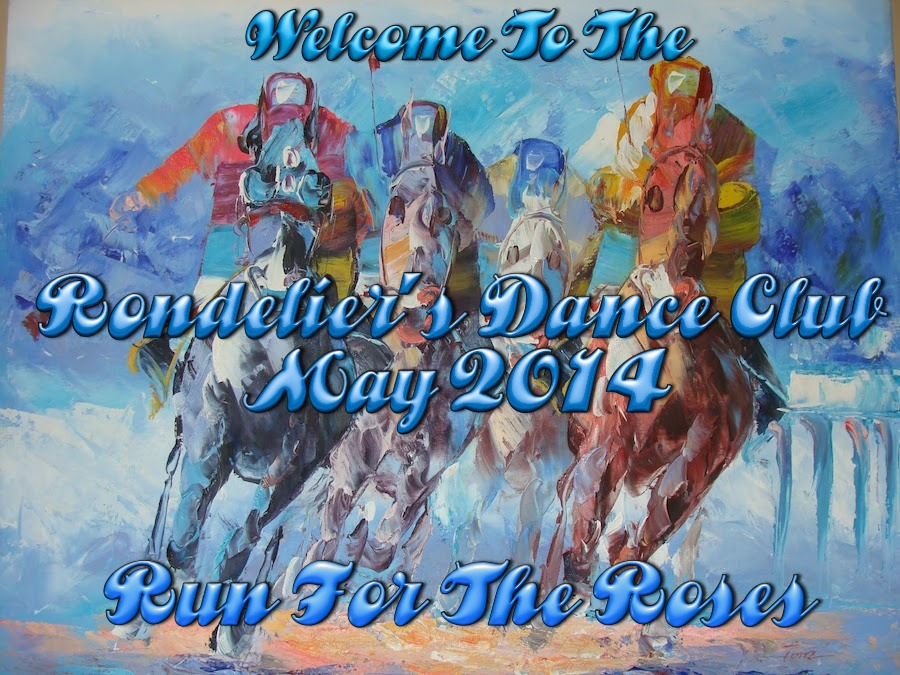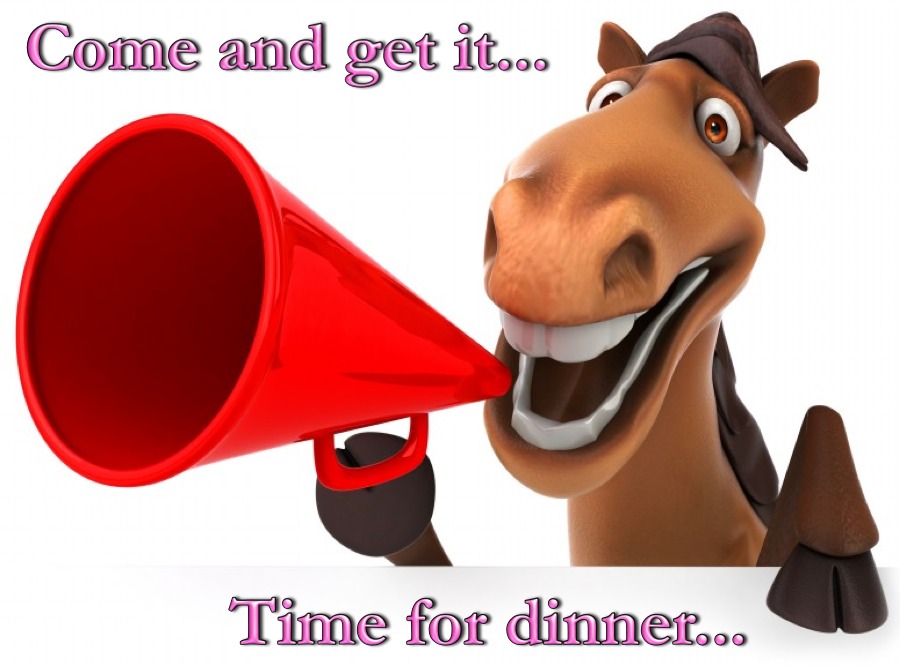Meet And Greet (Page One)
|
|
Theme: "Run For The Roses"
Page 1 - Meet and Greet | Page 2 - Who Was Here? Page 3 - Serious Dancing | Page 4 Comic View |
|





Did You Know? - The Kentucky Derby is a Grade I stakes race for three-year-old Thoroughbreds, held annually in Louisville, Kentucky, United States, on the first Saturday in May, capping the two-week-long Kentucky Derby Festival.
The race is one and a quarter miles (2 km) at Churchill Downs. Colts and geldings carry 126 pounds (57 kilograms) and fillies 121 pounds (55 kilograms).
The race is known in the United States as "The Most Exciting Two Minutes In Sports" or "The Fastest Two Minutes in Sports" for its approximate duration, and is also called "The Run for the Roses" for the blanket of roses draped over the winner.
It is the first leg of the US Triple Crown and is followed by the Preakness Stakes, then the Belmont Stakes. Unlike the Preakness and Belmont Stakes, which took hiatuses in 1891-1893 and 1911-1912, respectively, the Kentucky Derby has been run every consecutive year since 1875.
A horse must win all three races to win the Triple Crown.
The attendance at the Kentucky Derby ranks first in North America and usually surpasses the attendance of all other stakes races including the Preakness Stakes, Belmont Stakes, and the Breeders' Cup
Checking In

"We are here... The party may officially begin!"

"Oops... Our name is not on the list!"

The centerpieces were a celebration of the Kentucky Derby
Did You Know? - The Derby is frequently referred to as "The Run for the Roses," because a lush blanket of 554 red roses is awarded to the Kentucky Derby winner each year. The tradition originated in 1883 when New York socialite E. Berry Wall presented roses to ladies at a post-Derby party that was attended by Churchill Downs founder and president, Col. M. Lewis Clark.
This gesture is believed to have led Clark to the idea of making the rose the race's official flower. However, it was not until 1896 that any recorded account referred to roses being draped on the Derby winner. The Governor of Kentucky awards the garland and the trophy.
Dancing Gets Underway

Marion and Gary hit the floor running....

Angel had her bonnet.... Visiting with guest Margie Lebovitz

Guest Jean Blondeau chats with Elaine
Alexander

The tables were very pretty...
Roses and red everywhere

Gliding across the racetrack...

Who will win the centerpieces????

Keep looking...

Daylight savings time keeps it light until almost 8:00 pm

Contrary to how it looks, we are NOT dancing in the dark!
Did You Know? - Most of the time, a horse has "monocular" vision. This means a different image is seen by each eye so that a horse is seeing two different pictures at the same time. A horse can also have "binocular" vision. Binocular vision is when both eyes work together to see one picture (humans have binocular vision).
A horse only has binocular vision when it is looking down its nose.
A horse has a wide range of vision. A horse can see completely around its entire body except for small blind spots directly in front of its face, underneath its head, and directly behind itself. This is why it's very important not to walk up right behind a horse – you are in its blind spot and if you startle it you may get kicked.

The Wyatt Haupt Society had many "Horse Racing Songs" prepared
Listen to the top ten Race Horse Songs ?

Mount Wilson it at the top of the hill

Another fantastic music night....

Wyatt always comes prepared with themed music

Everybody dance....
Hey, it's a dance club!

Lazee days....

The dance floor allowed us to do exactly 1¼ miles (10 furlongs) (2,011.98 meters)
during each dance....
Do You Remember? - A Day at the Races (1937) is the seventh film starring the three Marx Brothers, with Margaret Dumont, Allan Jones, and Maureen O'Sullivan. Like their previous MGM feature A Night at the Opera, this film was a major hit.


Whirling and twirling....

Margie and Al trip the light fantastic

The world looks good through rose colored glasses...

Samba time....

These two could beat Secretariat any day

Lean to the left then lean to the right....

"Dear! Which way do we go next??"
Did You Know? - Churchill Downs, home of the Kentucky Derby, was founded in 1875 by Colonel Meriwether Lewis Clark, Jr., the grandson of William Clark of the famous exploring duo Lewis and Clark. (Google it.)
After the Southern aristocrat returned from a tour of Europe in 1873, where he visited race tracks in England and France, he convinced his cousins, John and Henry Churchill, to convert a portion of their family's 300-acre estate into a premier horse racing track. They did so in 1875, with the Churchill brothers providing the financial backing and Clark serving as the president and on-site manager.






It's poetry in motion

Getting in the last dance before dinner is served

"I see the salads being served"
Did You Know? - It's all about the heigth!
Horses height is measured in units known as "hands." One hand is equal to four inches.
A horse is usually considered to be 14.2 (14 hands, 2 inches) or taller when mature.
Anything under 14.2 when mature is usually considered to be a pony.

Time to cool off.... That fan is moving air in the entire room

"I have him trained well!"
Did You Know? - Think all there is to do in Louisville this week is watch one two-minute horse race? Wrong. These days the Kentucky Derby is just the main event amidst a whole week of events called the Kentucky Derby Festival.
The festival kicks off with "Thunder Over Louisville," which is a gigantic fireworks display. There there is the Great Balloon Race, the Great Steamboat Race, the Pegasus Parade, the Derby Marathon, and, finally, the Derby Oaks.
What is the Derby Oaks, you ask? Why it's the official sister race of the Kentucky Derby—literally. It's a Grade I stakes race for three-year-old thoroughbred fillies run the Friday before the Kentucky Derby.


Music - Call To Post
At a horse race, where the tune is also known as the Call to the Post, it is a signal that all mounts should be at the paddock exit in order to proceed to the track to begin the post parade. The tune is usually sounded by a bugler five to 10 minutes before the scheduled start time of the race. The call serves a similar purpose in dog racing.
|
|
Theme: "Run For The Roses"
Page 1 - Meet and Greet | Page 2 - Who Was Here? Page 3 - Serious Dancing | Page 4 Comic View |
|
